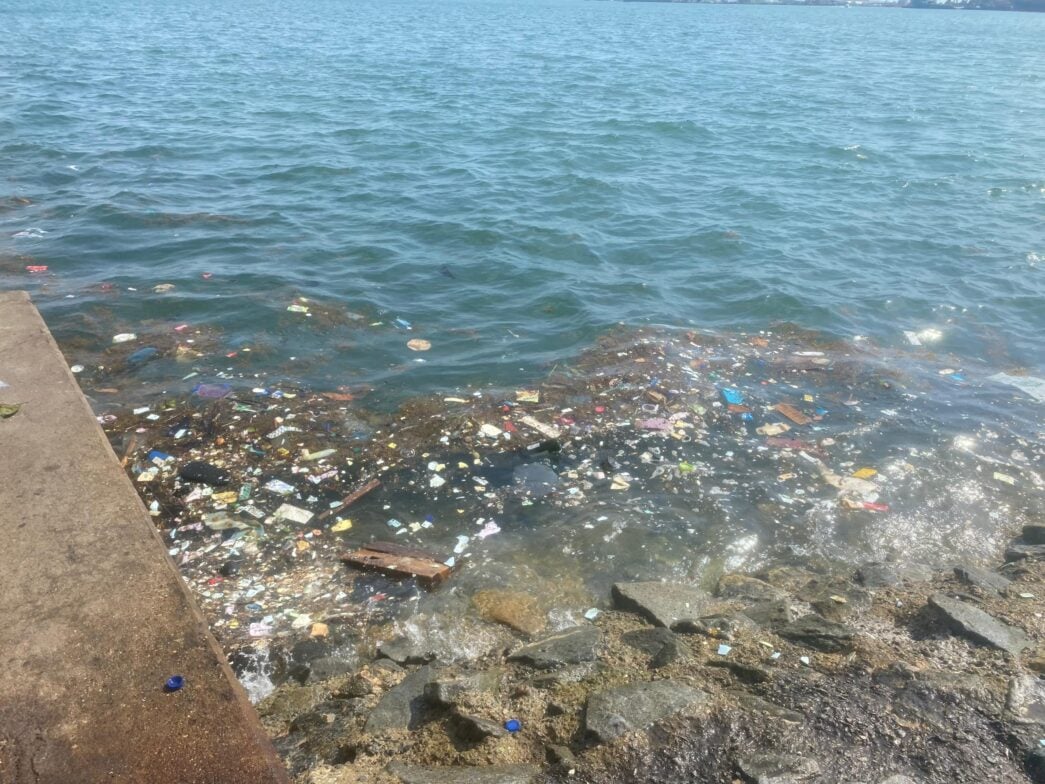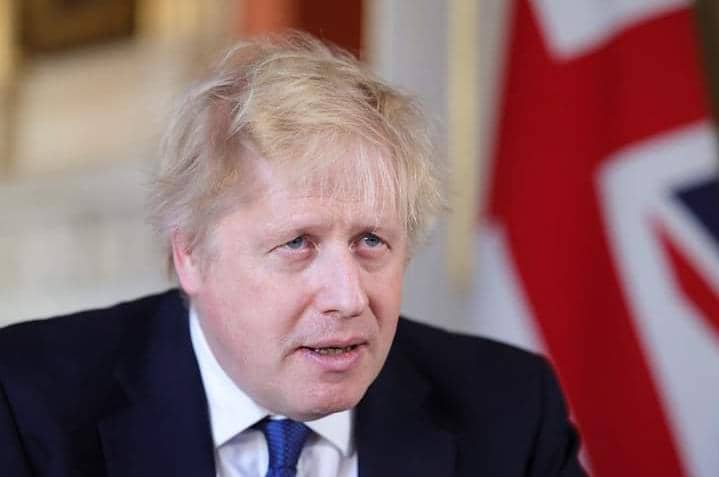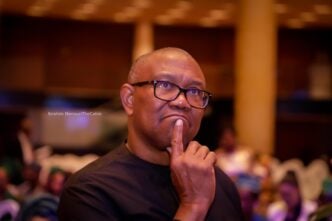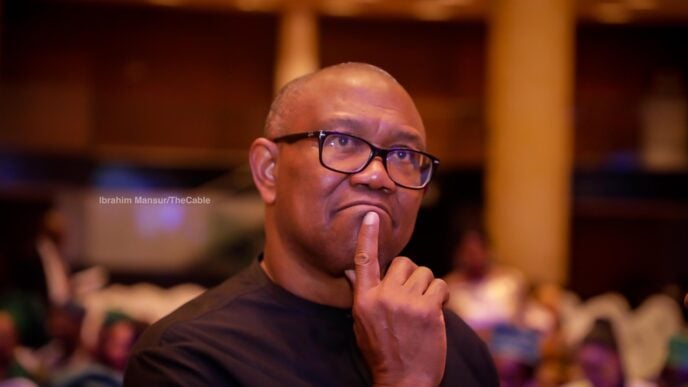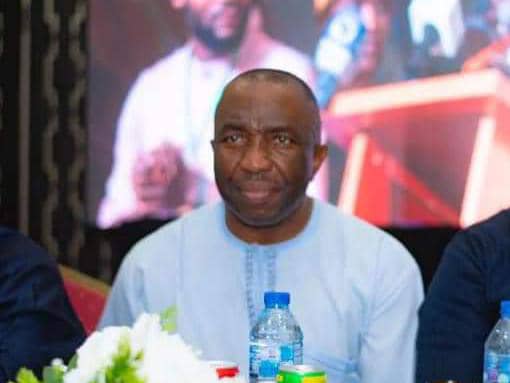As the Thursday morning sun brushed gently across the sea, Super Agbudeloye, a wiry 51-year-old fisherman from Ondo state, stood by his weathered canoe, engrossed in the delicate ritual of untangling his net. The laughter of young boys, fresh from their daily haul, rippled across the water as they pulled their boats ashore.
With hands aged by time and toil, Agbudeloye worked patiently to untangle his fishing net — now burdened with plastic debris and thick tangles of golden-brown sargassum, a seaweed often referred to as ‘flower’ by locals, which clung to the mesh with a subtle defiance, as though nature were meting out a slow punishment for humanity’s neglect.
His black oversized shirt, faded and torn from years of salt water and sun, hung loosely on his body, fluttering with every sigh of the cool ocean breeze that swept gently across the shoreline, as the seas whispered stories only seasoned fishermen like him could understand — one he began learning at the age of 10, when he first started fishing in Ondo state.
Agbudeloye had left Ondo for Lagos state with his family of seven in 2000 in the wake of the Ilaje-Ijaw communal conflict. The calm creeks he once called home had become battlegrounds in a bitter struggle over land, river for fishing, identity, and oil.
Advertisement
He would later find a sense of tranquillity in the waters of Akodo-Ise, a quiet coastal community, nestled within the Ibeju-Lekki area of Lagos, where he gradually began to rebuild.
The waters of Akodo-Ise, which fed Agbudeloye’s family for decades, are slowly being smothered — not by the familiar tides it is known for — but by a trio of growing ecological threats of plastic pollution, invasive sargassum seaweed, and water hyacinth.
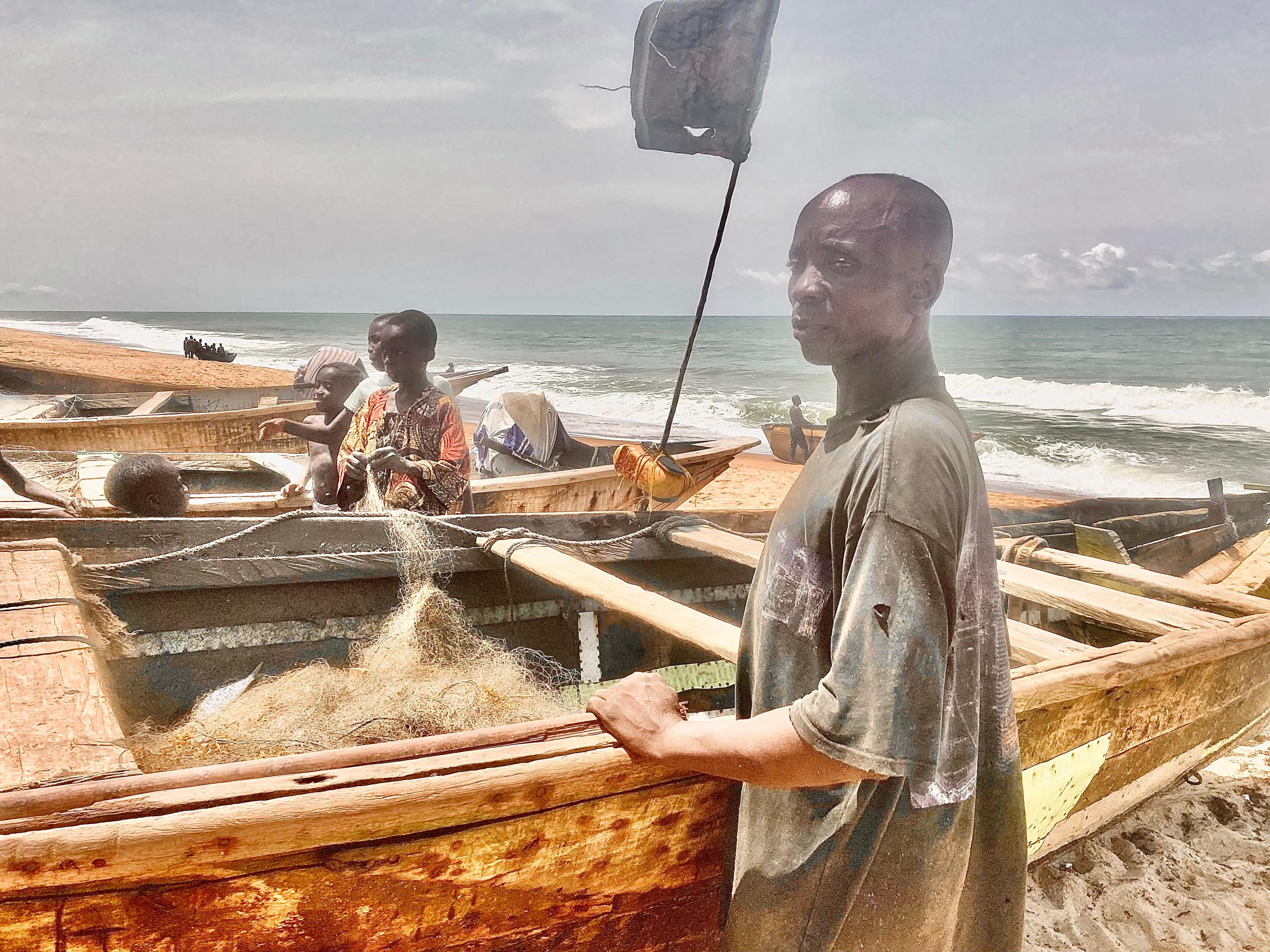
Again, he finds himself in another battle — not for land or resources, but for the survival of the river that once offered him refuge.
Advertisement
“I came to Lagos in 2000. Since that time, I don dey fish here,” Agbudeloye said in pidgin English laced with Yoruba accent.
“Now, things are no longer how they used to be. Nylons, bottles, and flowers are affecting us.
“On a good day, I catch fish worth N80,000. But now that plastics and ‘flowers’ are everywhere, we don’t catch enough fish again, and our income has dipped.”
The golden-brown seaweed used to drift in harmlessly with the tide. Today, it washes ashore in massive blooms, choking fish habitats and entangling nets.
Advertisement
Once a seasonal problem, sargassum has now become a year-round obstacle, with its increased presence linked to warmer temperatures, changing sea currents, and increased rainfall.
To make matters worse, water hyacinth, a floating invasive plant, has also crept into the coastal channels. With its thick mats and fast spread, it clogs waterways, hinders boat movement, reduces oxygen levels, and disrupts local fish populations.
A COASTLINE UNDER SEIGE
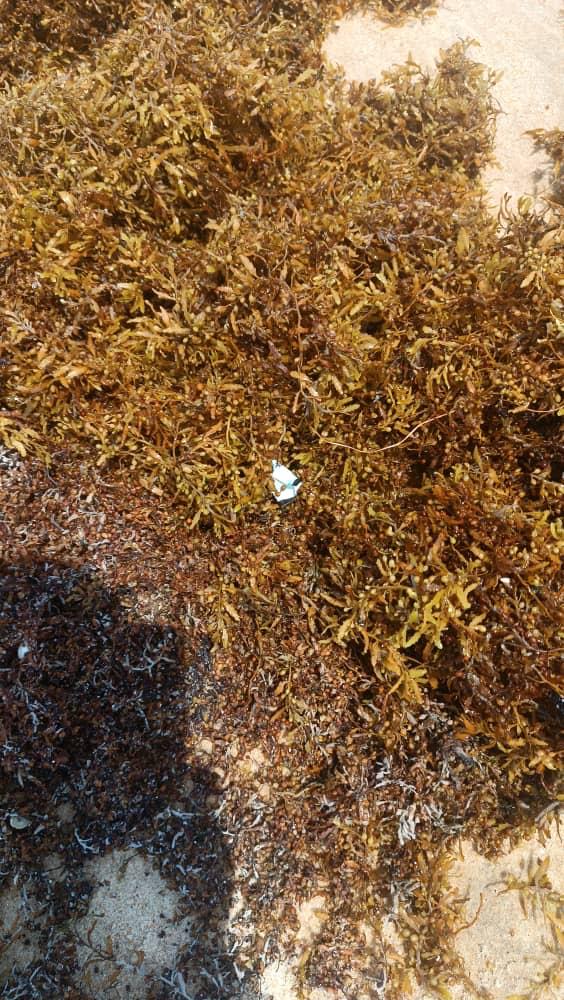
Nigeria is grappling with a growing plastic pollution crisis that is increasingly threatening its marine biodiversity and public health.
Advertisement
With a population of about 200 million, the country ranks as the second-largest producer of plastic waste in the world, generating about 3.5 million tonnes annually.
Daily, Lagos state produces about 2,250 tonnes of plastic waste and up to 870,000 tonnes annually, making it the highest emitter of plastic pollution of any city in the world. Some of these plastics are now finding their way into water bodies and disrupting marine ecosystems.
Advertisement
In many coastal areas, plastics that settle on the seabed or drift onto beaches are altering natural habitats, especially for species like seabirds and turtles that rely on these areas for nesting and feeding.
As plastics break down under heat and saltwater, they release toxic chemicals like bisphenol A (BPA) and phthalates — synthetic chemicals used in making polycarbonate plastic — polluting freshwater sources and marine life.
Advertisement
These chemicals are not just harmful to aquatic organisms; they also make their way into the food chain, eventually reaching humans.
But the problem is not just the locals. Much of the plastic waste clogging Nigerian waterways bears the logos of multinational corporations.
Advertisement
According to a global audit of plastic pollution across 39 countries, Coca-Cola tops the list as the world’s largest plastic polluter, responsible for over 19,000 pieces of plastic waste, followed by PepsiCo (8,231), Unilever (6,079), and Nestlé (4,149).
These everyday products often end up far from their points of sale, floating into poor coastal communities with no means to manage their cleanup.
| Rank | Company | Countries | Plastics |
| 1 | Coca-Cola | 39 | 19,826 |
| 2 | PepsiCo | 35 | 8,231 |
| 3 | Unilever | 30 | 6,079 |
| 4 | Nestlé | 30 | 4,149 |
| 5 | Procter & Gamble | 30 | 1,939 |
| 6 | Mondelez International | 28 | 2,065 |
| 7 | Philip Morris Intl. | 26 | 1,505 |
| 8 | Danone | 25 | 3,223 |
| 9 | Mars, Inc. | 24 | 961 |
| 10 | Colgate-Palmolive | 22 | 941 |
In places like Akodo-Ise, where drainage systems are either poorly maintained or nonexistent, the problem compounds. Plastic waste blocks natural water channels and storm drains, contributing to increased urban flooding and creating stagnant pools where mosquitoes breed, exacerbating the public health risks.
Open burning of plastic waste, a common method of disposal in many low-income communities, releases harmful gases, including carbon dioxide and methane, further contributing to climate change and threatening air quality.
Like Agbudeloye, Kassim Ibrahim, a native of the Akodo-Ise community, has faced his daily battle with plastic pollution. Once able to fish freely across familiar waters, Ibrahim now avoids some sections of the river where the waste has grown so thick that it is no longer worth casting his nets or setting his lines.
Yet, he continues, like so many other fishermen, to navigate around the waste, adjusting his methods, hoping that the sea might one day recover what it has lost.
Ibrahim says he makes up to N50,000 on good days, but with plastics in his way, he goes home with just a measly N15,000 — not enough to cater for his large family of six.
“The plastics block everything. As we throw our hook inside the water, the bait disappears under the plastic, so the fish won’t find it.
“Sometimes, when we catch a fish, we have to remove the plastics they have swallowed. I once caught a fish that had swallowed a nylon. The fish was barely breathing.”
THE GLOBAL OCEAN CRISIS
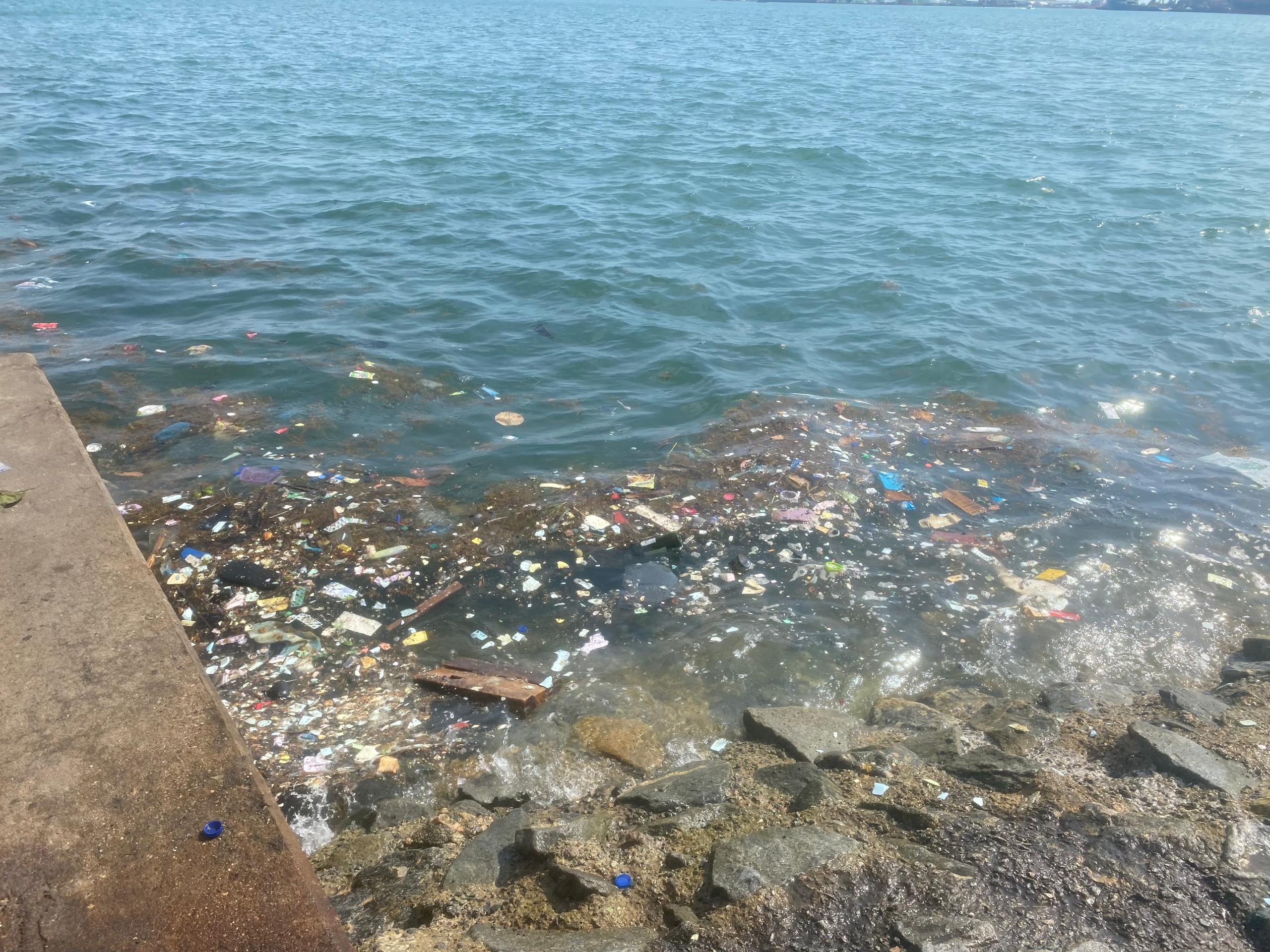
The plastic pollution crisis is not limited to Lagos. Globally, up to 23 million tonnes of plastic enter aquatic ecosystems each year.
An estimated 5 to 12 million tonnes of plastic waste end up in the ocean, with single-use plastics like bags and bottles making up nearly 90 percent of what is found in the marine ecosystem.
In 2021 alone, over 17 million metric tonnes of waste entered the oceans, a figure expected to double or triple by 2040 if nothing changes.
While damage from plastics continues, a small but significant shift is happening in the packaging industry. The market for post-consumer recycled (PCR) plastic packaging — plastics that have already been used and recycled — is on the rise.
In 2023, the global PCR market was worth $42.08 billion, and is expected to grow to over $82 billion by 2034.
This growth reflects a rising demand for eco-friendly packaging and signals that businesses are beginning to recognise the economic and environmental benefits of reducing their plastic footprint.
But for fishermen like Agbudeloye and Ibrahim, such market shifts feel distant, drowned out by the daily reality of plastic-choked nets and dwindling hauls.
Oceans are great carbon sinks; they regulate temperature and sustain up to three billion fishermen by providing them a source of livelihood.
As plastics break down into microplastics, they infiltrate food chains and human bodies.
A recent study revealed that the average person consumes up to 211,000 microplastic particles annually, most of which are said to be found in 98.9 percent of seafood.
TURNING PLASTIC WASTE INTO EDUCATIONAL CURRENCY
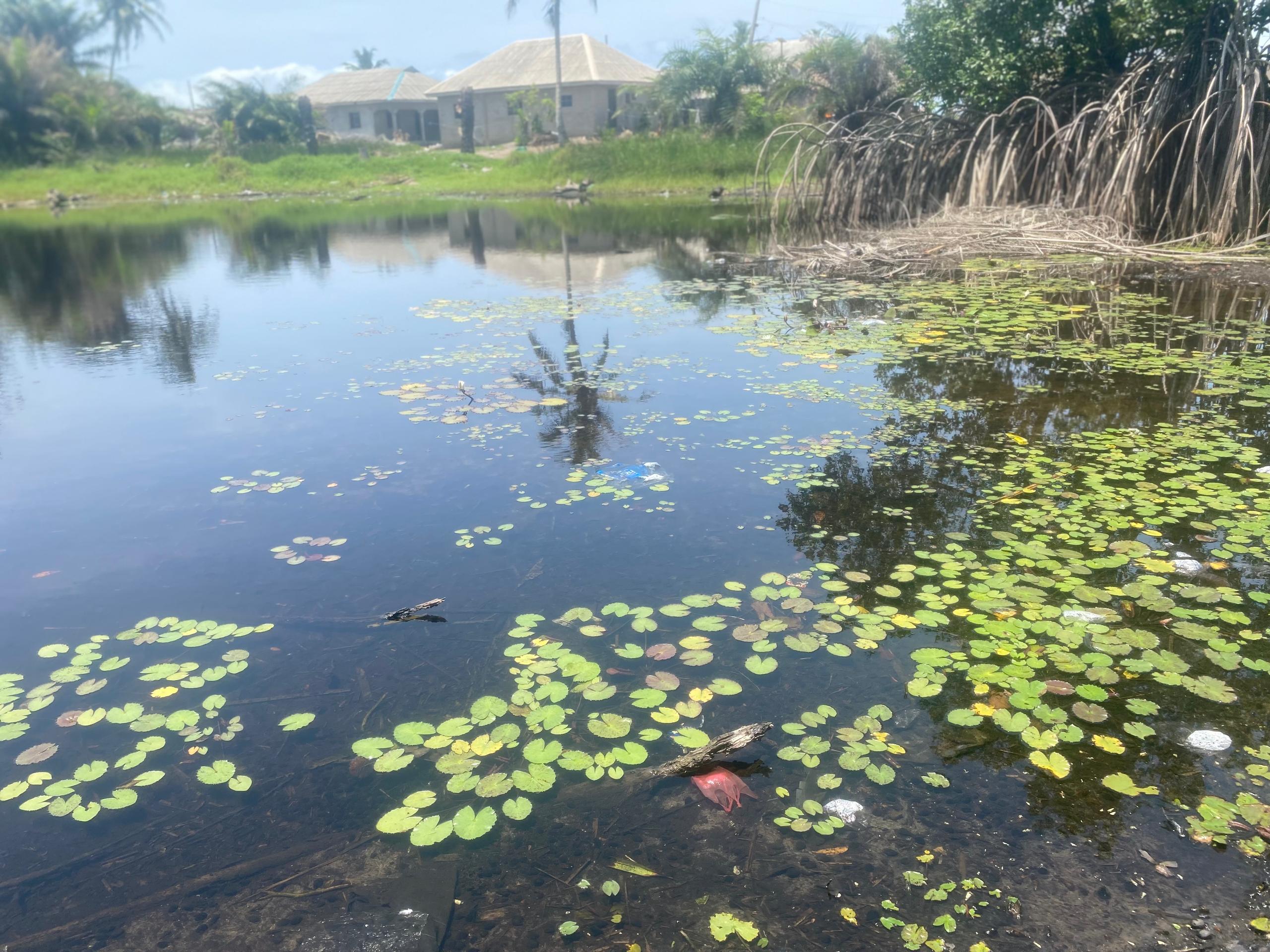
Amid the bleak statistics, hope rises from unexpected places. The African Cleanup Initiative (ACI) is turning waste into opportunity in Lagos communities.
Founded 15 years ago in Ajegunle, one of Lagos’ most overlooked communities, ACI, among other campaigns, began the “Recycle-Pay” initiative — allowing parents and guardians to offset tuition fees with recyclable plastics.
The programme, which partners with schools, has not only reduced plastic litter but kept countless children in class.
According to Elvis Umunna, ACI’s operations lead, the group aims to confront both plastic pollution and growing educational inequality in the state.
“We realised that waste was everywhere, and education was slipping away from so many children. So, we decided to help children return to school and continue their education,” Umunna said.
“Parents were relieved; school owners were supportive; and children stayed in class. It was a win for everyone.”
Beyond education, ACI is also raising awareness about the invisible dangers of microplastics, organising regular beach cleanups and pushing for systemic change.
Through this efforts, the organisation pushes for long-term behavioral change — aiming to tackle the crisis from its roots.
But Umunna admitted that the programme is not self-sustaining; he noted that with support and funding from government and well-meaning individuals, the campaign to reduce plastic waste can thrive in the state.
“If we relied only on the plastics collected, we may not be able to keep these children in school. We need support — donations, educational materials, funding — to scale up and reach more communities,” he said.
For Umunna and his team, recycle-pay is about more than waste or tuition. It is about giving children from low-income areas a chance to learn and grow into environmentally responsible citizens.
BAN ON SINGLE-USE PLASTICS IN LAGOS
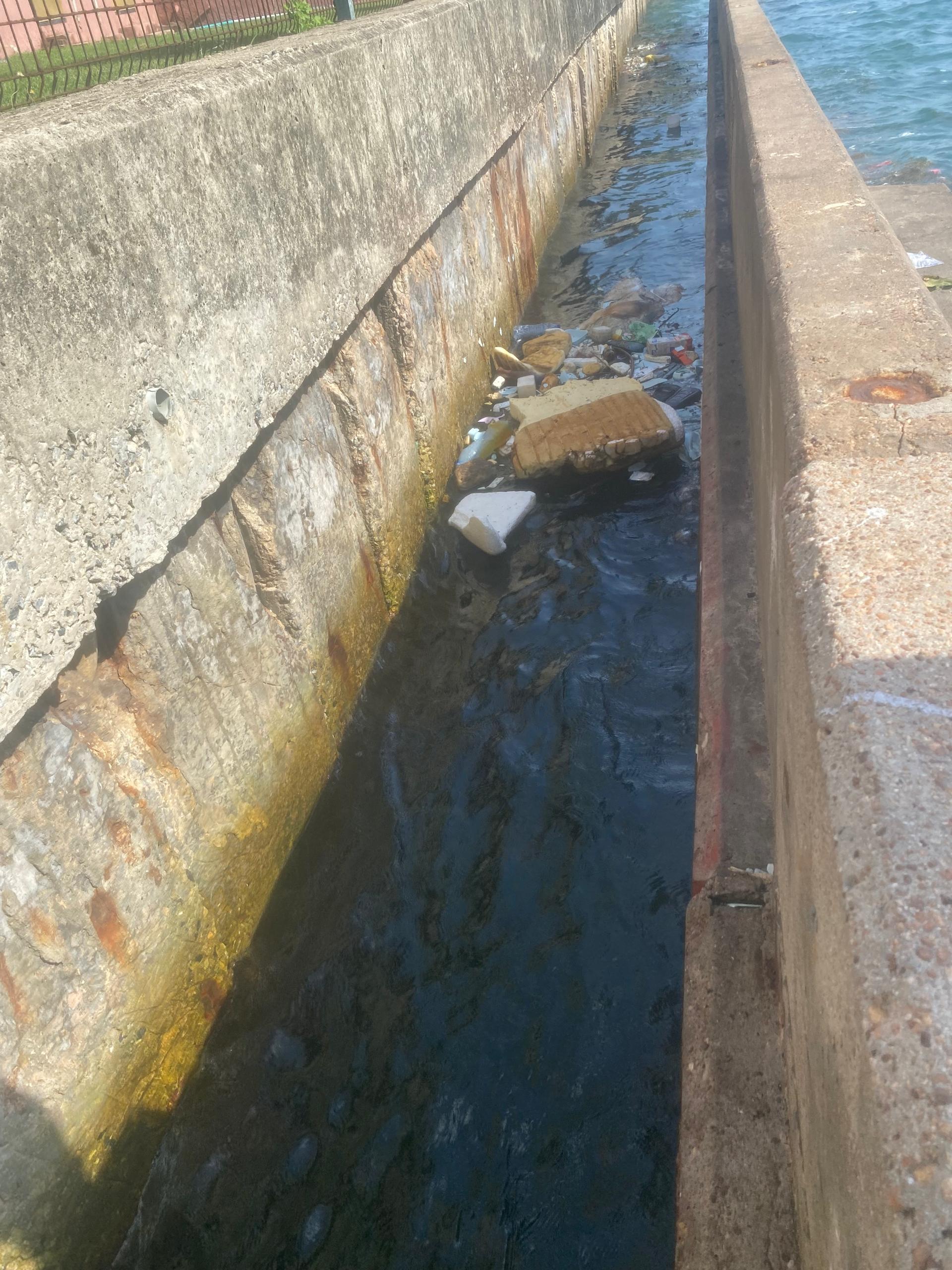
In January 2024, the Lagos government took a bold step by banning styrofoam and single-use plastics.
Tokunbo Wahab, commissioner for the environment and water resources, cited the environmental toll — clogged drainages, rampant littering, and increased flooding.
But implementation remains weak. Many are unaware of the ban; and for those who are, economic hardship makes sustainable alternatives feel out of reach.
Nigeria is yet to enact a federal law banning single-use plastics, though several bills have been proposed in the national assembly. The absence of clear nationwide legislation continues to hamper coordination across states and sectors.
Environmental advocates say that without strong enforcement, incentives for alternatives, and deep public education, the ban risks becoming another policy that looks good on paper — but fails to protect the people it was designed to help.
Back in Akodo-Ise, Agbudeloye casts his net once again, sifting through plastic and seaweed, hoping for the glimmer of fish.
